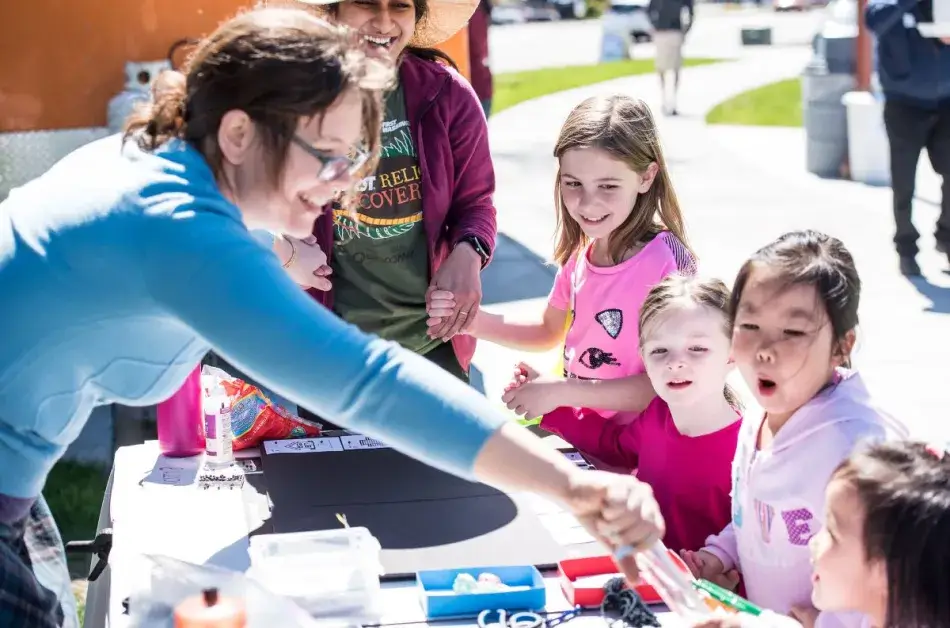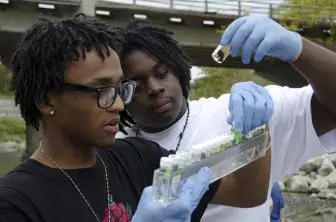Case study
Informal Science Education: Bringing climate education to the public

Informal science education outside the traditional school system can be a powerful tool to integrate climate education into different venues, educate people who may not thrive in a structured classroom environment, and extend the reach and audience for climate knowledge. Science fairs, climate weeks, museums, libraries, nature centers, civic organizations such as the Boy Scouts and Girl Scouts of America, and faith groups, including adult study groups, Sunday schools, Hebrew schools, and youth groups, all can be effective platforms for climate education. These opportunities allow climate information to reach audiences of all ages and geographic regions, including those where climate change is not adequately taught in the school curriculum.
The Science Festival Alliance highlights science festivals in locales nationwide, from Alabama to Virginia, Colorado, Massachusetts, and California.iThese festivals allow the public to engage with climate science and scientists. They also provide resources for those interested in setting up new community festivals. Collaboration with local museum exhibits and discussions provides additional opportunities for increased exposure to climate change science outside the classroom.
Informal science education opportunities are beneficial because they are often free or available at low cost and are accessible to all ages and a wide range of demographics. However, local views of climate science and policies can sometimes dissuade event and program organizers from implementing informal science education opportunities and programs where access to this information would be most impactful. Framing climate issues in a local context, increasing accessibility of scientific information, ensuring available funding, and forging partnerships and collaborations with experts help overcome these barriers.


